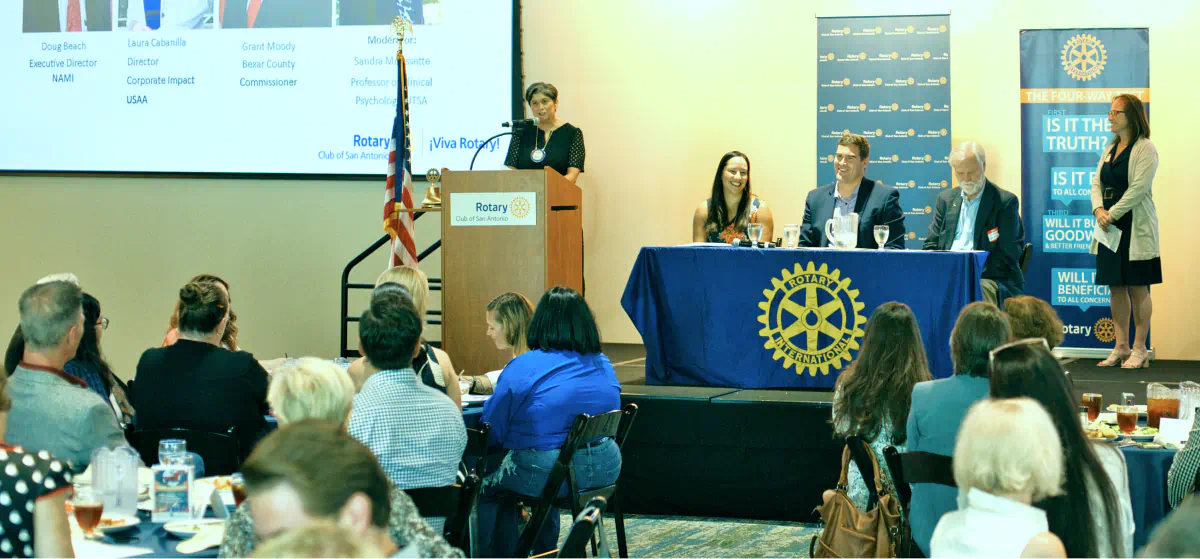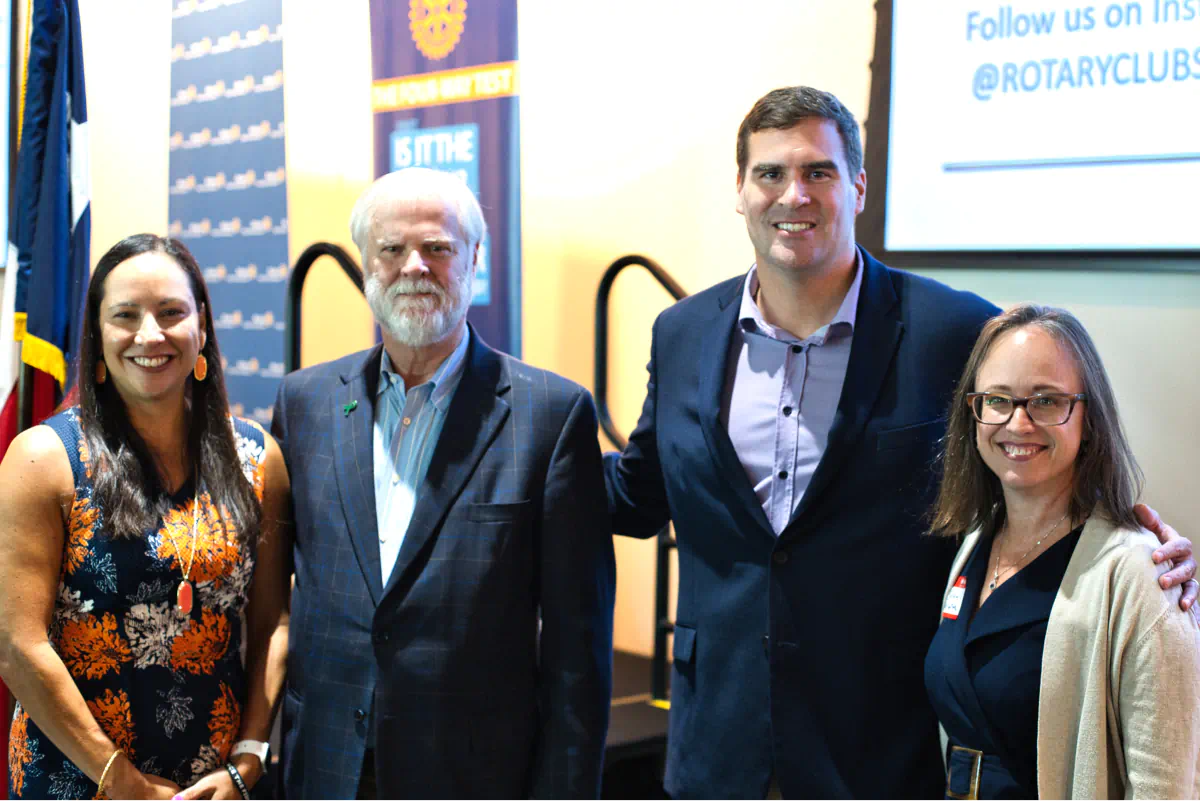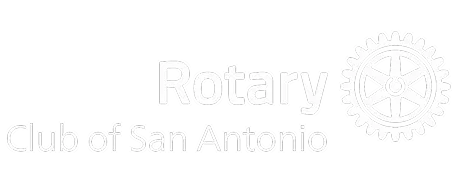
From Stigma to Support: Rotary Luncheon Panel Elevates Mental Health Conversation

At the August 13 luncheon, the Rotary Club of San Antonio hosted a distinguished panel of leaders for a timely discussion on mental health and its impact on workplaces, veterans, and the broader community.
The conversation was moderated by Dr. Sandra Morissette, Professor and Chair of Psychology at the University of Texas at San Antonio. Dr. Morissette, a nationally recognized researcher in trauma and suicide risk, set the stage by reminding attendees that “we all have mental health”—whether facing daily stress or more serious challenges—and urged that destigmatization is essential to ensuring people feel safe to seek help.
Panelist Doug Beach, Executive Director of NAMI of Greater San Antonio, emphasized the importance of recognizing warning signs such as prolonged sadness, withdrawal, or risky behavior. He described NAMI’s Stigma-Free Workplace program, which equips employers to create cultures where employees can access care without fear of judgment. “If you see something you don’t recognize in a friend or coworker, that’s the time to check in,” Beach said.
Commissioner Grant Moody, a Marine veteran and Bexar County Precinct 3 Commissioner, spoke candidly about his own transition from military service and the challenges veterans can face when leaving a mission-driven environment. While underscoring the strengths veterans bring to communities, he also pointed to the need for stronger networks of support. Moody highlighted county investments in counseling for schools, community-based services, and expanded mental health treatment options to reduce pressure on the jail system, where many inmates are in need of care rather than incarceration.
From the corporate perspective, Kendra Mathews, Corporate Impact Director at USAA, described the company’s leadership in forming the Face the Fight Coalition, a national initiative dedicated to reducing veteran suicide. She noted that while most veterans thrive, those who struggle deserve targeted support—and community partnerships are critical. With more than 250 organizations now involved and millions already distributed in grants, the coalition aims to save thousands of lives by the next decade.
Throughout the panel, speakers returned to a common theme: small actions matter. Checking in on a colleague, starting open conversations, or supporting coalitions like Face the Fight can make a difference. As Dr. Morissette noted, mental health is inseparable from overall well-being and community strength.
The luncheon closed with an invitation for Rotarians to become active participants in creating stigma-free workplaces, supporting mental health resources, and modeling the compassion and connection that can help save lives.



.svg)
.svg)
.svg)
